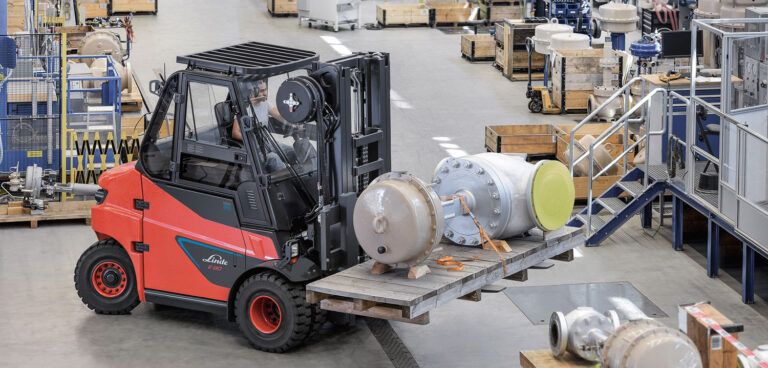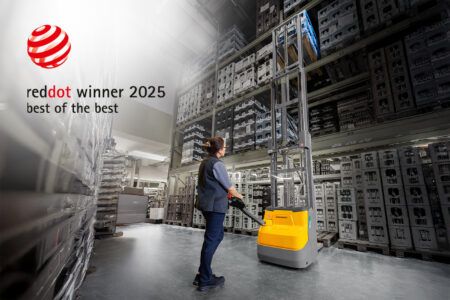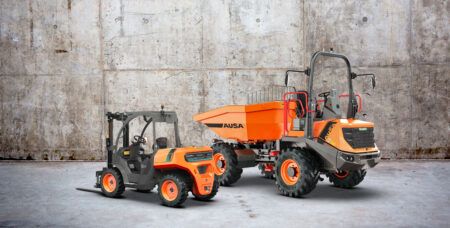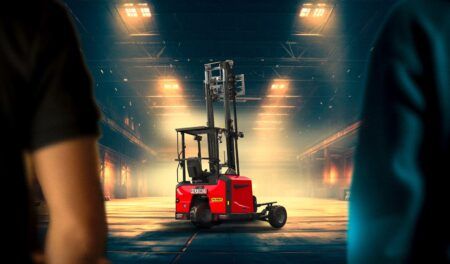Linde Material Handling has announced that its largest lift-trucks – in the 6- to 8-ton category – will now be available with lithium-ion batteries, meaning its entire electric counterbalanced truck range now has this option (these vehicles also come with the alternative existing option of lead-acid batteries).
Since 2017, the option of lithium-ion has been available for almost all electrically powered Linde series with a load capacity of up to 5 tons. The addition of further models to fill the last gaps in the product range, which goes up to 8 tons.
“Only very few manufacturers offer electric forklifts in this load category,” said Björn Walter, product manager – counterbalanced trucks at Linde Material Handling. “We are therefore proud to provide a complete solution consisting of a lithium-ion battery plus a charger for these heavy-duty vehicles too.
“This is where the benefits of lithium-ion technology, such as longer availability and doing away with the need to change batteries, as well as positive effects like higher driving speeds and favorable temperature behavior, are particularly evident.”
All models in this series can be equipped with a powerful 90V lithium-ion battery with almost 120kWh capacity. Chargers with 9kW, 17kW and 30kW are available – depending on how quickly the (intermediate) charging of the battery has to take place during operation.
Thanks to the lithium-ion battery, the maintenance-free three-phase drive motors accelerate the truck to 20km/h (12.5mph) travel speed with or without load – a significant advantage compared to the corresponding lead-acid models. This goes hand in hand with a corresponding performance gain.
Resistant to a wide range of temperatures
Added to this is the great robustness of heavy-duty trucks with lithium-ion battery – not least with regard to prevailing ambient temperatures. The 90V units operate both in frosty conditions and in industrial environments with high thermal stress. In contrast to their lead-acid counterparts, lithium-ion batteries do not heat up. This means that the otherwise required breaks for cooling the battery, which sometimes last for hours, are no more.
Another advantage of lithium-ion technology is particularly evident in heavy-duty trucks with 6-8 tons load capacity: no battery change is required.
“A lead-acid battery of this size weighs about 3 tons and must be replaced with the help of a forklift, for example,” said Walter. “This not only costs time and money, but also involves numerous risks, such as injury to employees or damage to the battery or vehicle.”
Lower emissions, improved sustainability
In addition, lithium-ion trucks contribute to improved sustainability. This is because they generate lower levels of CO₂ than forklifts with lead-acid batteries and diesel drives. How much can be calculated precisely for each individual application using the Li-ion calculator from Linde MH. The lithium-ion battery also performs better with regard to other emissions: No harmful battery gases requiring extraction are produced during the charging process.
“There is a strong case for lithium-ion technology,” said Walter in conclusion. “With our comprehensive range, generous warranty modalities and flexible battery rental contracts, we are now ensuring further growth dynamics.”





